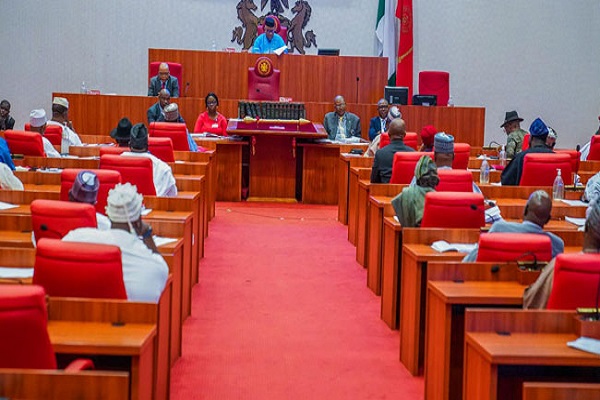News
Medical practitioner hails USAID-IHP’s intervention in Ebonyi health sector

A Medical Practitioner, Dr Ogbonna Nwambeke, has said that the intervention of the United States Agency for International Development (USAID)–Integrated Health Programme (IHP) has boosted healthcare delivery in Ebonyi.
Nwambeke, who is the Medical Officer in charge of the General Hospital Ezzamgbo, Ohaukwu Local Government Area of Ebonyi, made the assertion on Sunday while speaking with the News Agency of Nigeria (NAN).
The medical practitioner noted that such intervention has made the job of health workers easier in the face of daunting challenges.
“The situation in our hospital for instance was not easy until USAID-IHP assisted us through various interventions.
“These interventions include: training and re-training of staff, maternal/child health and family planning services, health education among others,” he said.
He noted that the training and re-training on service delivery were mostly significant because they were rare in the sector.
“USAID-IHP provided us with needed materials to discharge our functions such as family planning commodities and surgical check-list among other working tools.
“These items have assisted us in making efficient diagnosis, treatments and offering general healthcare services to the people,” he said.
Nwambeke expressed happiness with the state government’s approval for recruitment of health personnel, noting that the hospital was in dire need of staff.
“When these commodities are provided and there is no one to do the work, it is then not desirable.
“The lack of midwives and nurses for instance, make expectant mothers yield to the temptation of patronising quack birth attendants for deliveries.
“Adequate manpower is critical to check incidences of maternal mortality in the state,” Nwambeke added.
Headline
Prince Harry visits sick Nigerian soldiers in Kaduna

Prince Harry and his team visited the 44 Nigerian Army Reference Hospital in Kaduna to interact with wounded soldiers who are receiving treatment.
The Duke of Sussex is in Nigeria with his wife to champion the Invictus Games, which Harry founded to aid the rehabilitation of wounded and sick servicemembers and veterans.
Nigeria joined the Invictus Community of Nations in 2022 becoming the first African country to join.
Prince Harry’s visit to Kaduna came 68 years after his late grandmother Queen Elizabeth II visited the state during the time of the late Premier of Northern Region Sir Ahmadu Bello.




News
Senate approves death penalty for drug traffickers

Senate on Thursday, May 9, approved the death penalty for those convicted on the charge of drug trafficking in the country.
The punishment prescribed in the extant NDLEA Act is a maximum sentence of life imprisonment.
The resolution of the Senate followed its consideration of a report of the Committees on Judiciary, Human Rights and Legal Matters and Drugs and Narcotics, National Drug Law Enforcement Agency (NDLEA) Act (Amendment) Bill, 2024.
The Chairman of the Committee on Judiciary, Human Rights & Legal Matters presented the report during plenary, Senator Mohammed Monguno (APC-Borno North).
The bill, which passed its third reading, aims to update the list of dangerous drugs, strengthen the operations of the NDLEA, review penalties, and empower the establishment of laboratories.
Section 11 of the current act prescribes that “any person who, without lawful authority; imports, manufactures, produces, processes, plants or grows the drugs popularly known as cocaine, LSD, heroin or any other similar drugs shall be guilty of an offence and liable on conviction to be sentenced to imprisonment for life” was amended to reflect a stiffer penalty of death.
Although the report did not recommend a death penalty for the offence, during consideration, Senator Ali Ndume moved that the life sentence should be upgraded to the death penalty.
During a clause-by-clause consideration of the Bill, Deputy Senate President Barau Jibrin, who presided over the session, put the amendment on the death penalty to a voice vote and ruled that the “ayes” had it.
But Senator Adams Oshiomhole objected to the ruling, saying that the “nays” had it.
He argued that matters of life and death should not be treated hurriedly, but Barau said it was too late, as he failed to call for division immediately after his ruling.
The bill was subsequently read for the third time and passed by the Senate.
-

 Headline5 days ago
Headline5 days agoSuspend cybersecurity levy– Reps to CBN
-

 Business5 days ago
Business5 days agoNigeria needs over $2bn to revive Ajaokuta Steel Plant, says Minister
-

 Headline3 days ago
Headline3 days agoPrince Harry visits sick Nigerian soldiers in Kaduna
-

 Entertainment3 days ago
Entertainment3 days agoAMVCA Cultural Day: BBNaija’s Neo, Venita win Best Dressed Male, Female
-

 Headline5 days ago
Headline5 days agoTinubu resumes work after foreign trip
-

 News5 days ago
News5 days agoShan George’s money returned to Zenith Bank account
-

 Metro3 days ago
Metro3 days agoEx-Sports Minister laments after hospital neglected him for hours over N80000 deposit



